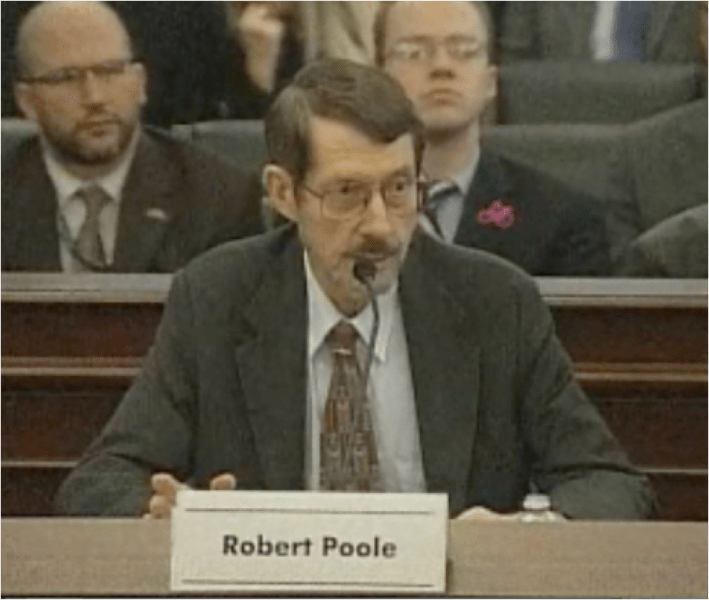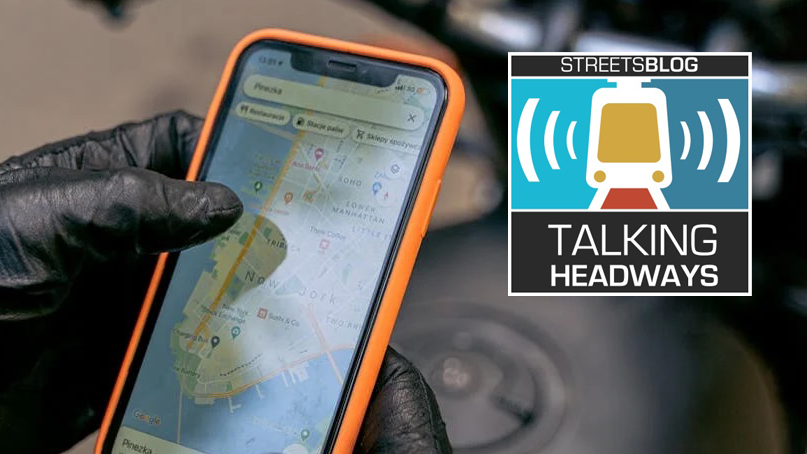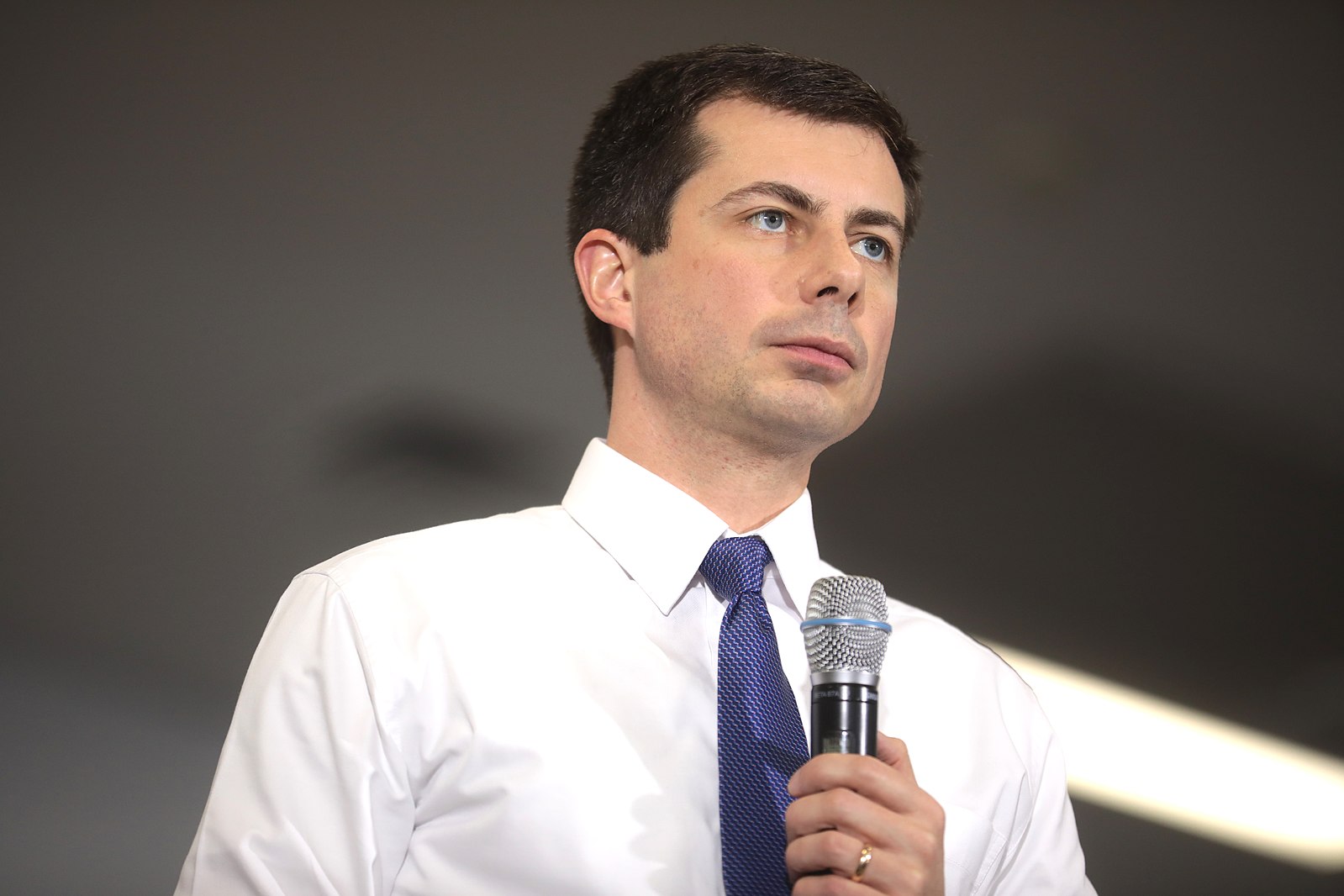The House is a dangerous place these days. You want to have a fruitful conversation about how to solve the transportation funding crisis and you end up ruminating about whether to tax bikes.

That’s what happened to Rep. Earl Blumenauer (D-OR). He requested that the Budget Committee hold a hearing on the impending insolvency of the Highway Trust Fund, but guess who controls the agenda? Not Earl Blumenauer! Committee Chair Paul Ryan controls the agenda. And he invited Robert Poole of the Reason Foundation and Richard Geddes of Cornell University and the American Enterprise Institute as the Republican witnesses.
Ryan didn’t stick around past his opening statement – he had other business to attend to – but guess who he passed the gavel to? Rep. Scott Garrett of New Jersey – the guy who keeps sponsoring a bill to diminish the federal role in transportation funding and pass it along to the states. This hearing was clearly going to be a doozy.
Highways only and forever
The hearing started off crazy and just got crazier. Poole got right to the point: Let’s stop funding anything but highways out of the Highway Trust Fund. There’s plenty of money in it if we only spend it on highways – and not just any old highways either, only the ones with a role in interstate commerce. You know, the ones that are “truly federal.”
Not only that, let’s move the Federal Transit Administration out of U.S. DOT and into the Department of Housing and Urban Development – “That would be consistent with the increasing emphasis at FTA on smart growth, community economic development and so forth.” Essentially, let those woolly urban liberals go crazy over at HUD -- we weren’t using that agency anyway. Let’s keep DOT clean of all that livability junk.
Oh, and let that new HUD FTA fight for general funds every year, instead of having guaranteed income from a trust fund.
Some more tolling could be helpful, too, Poole said; some public-private partnerships, some private activity bonds, TIFIA, and let’s talk about switching to a mileage-based user fee, or VMT tax – but really, the red meat here is highways and only highways.
Thanks, Robert Poole. Next up, Richard Geddes wanted to talk about the insustainability of any funding mechanism that depends on the burning of fossil fuels and the benefits of a VMT fee -- a decent start. But the part of his talk that Rep. Garrett homed in on was the mention of a “permanent” public trust fund (basically a Highway Trust Fund, but invested in the stock market). Garrett speculated that Washington would get its mitts on that “permanent” fund and “use it for different things – highway beautification, bike paths – ooh, great things” but not what highway money should be used for.
That, of course, was a dig at Transportation Enhancements, a wildly popular program that MAP-21 morphed into Transportation Alternatives, and which spends a tiny fraction of the transportation budget on active transportation projects, among other things. But Republicans like to talk about how it pays for “beautification” (12.8 percent of TE) and “transportation museums” (1.5 percent) and even things no one has ever heard of like “turtle tunnels” and “squirrel sanctuaries.”
Lawmakers and witnesses even called out Safe Routes to School by name as a program that doesn’t belong in the federal sphere. Like Georgia Republican Rob Woodall, who got all folksy in his diatribe against a federal role in Safe Routes: “I walked to school every day of my elementary school life -- unless I was riding my new Huffy bike that Santa Claus brought one of those years -- and when an intersection got to be too busy, the community got together and we put in a traffic light there, and crosswalks,” Woodall said. “And when it still was too busy, we put in a crossing guard. The community had this need and this concern, and the community solved these things.”
Poole had his turn, and even Democratic witness Janet Kavinoky of the U.S. Chamber of Commerce agreed that it was silly to require “that a state choose to spend money, with all due respect [to Rep. Blumenauer], on bike paths over fixing a bridge.” Luckily, however, MAP-21 had eliminated the requirement to spend on those “lower national priority” items like Safe Routes to School.
That’s right, said Blumenauer, and the consequences could be dire. Just as the federal government saved lives with the seat belt mandate, he said, it must intervene to save the lives of cyclists and pedestrians. “It’s a scandal, in most of America, the status of conditions for pedestrians and school children,” Blumenauer said. “You may not think SRTS is a high national priority… [but people around the country] look at the disproportionate number of people who are killed in pedestrian and bike accidents, and look at how little federal money flows in terms of that allocation and they think maybe there is a national priority.”
“Choices went away because we put almost everything into the highway and into the individual automobile,” he said.
But doesn’t transit benefit drivers and corporate executives?
And you know what those individual motorists should be grateful for? Transit! After all, transit reduces congestion, said Rep. Chris Van Hollen (D-MD). Kavinoky agreed. “The bottlenecks on the interstate highway system are in urban areas,” she said. “We’re not going to be able to build our way out of that.” To “unlock” the whole system, she added, there needs to be a strong federal role – and adequate funding – for transit.
Not really, said Poole: Transit ridership hovers around 1 percent, so it doesn’t really make a dent in congestion. He even used a Brookings study on transit’s inadequacy at reaching jobs to prove his point.
Hakeem Jeffries of Brooklyn got Poole to acknowledge that Wall Street, and the health of the financial services industry, is of national importance, and asked whether mass transit that connects Wall Street to the suburbs then is a federal concern. Poole wouldn’t go further than to say that it makes sense to have transit there. Kavinoky added that “transit is part of a transportation system that works”.
Business isn’t just thinking about interstates anymore, Kavinoky said; it’s thinking about mobility. “We’re really tired of the debates and discussions of highways versus transit, and ‘We’ll kick this one out and put this one in,’” she said. “What we hear is, ‘We need to make investments in transportation, to move people, to facilitate the movement of goods, to solve congestion problems, to create economic growth.’”
It’s hardly worth talking about kicking transit out of the trust fund, anyway, she said, since “the 112th congress overwhelmingly rejected that approach.”
Plus, the notion that we’d have plenty of money if only we stopped funding transit and such frivolities out of the fund is only speculative – as Geddes said, we don’t know how much revenue will be coming in to the trust fund in the coming years, since “we’ve seen a leveling-off [of VMT] in recent years that is unprecedented since World War II.”
Still, Geddes’ solution of a VMT fee came in for some criticism. Reid Ribble (R-WI) worried that it would cost rural people more since they drive longer distances. Not to worry, Poole said, it would actually cost rich people more because “they live in nice, wealthy suburbs” and have long commutes.
Some lawmakers, like Alan Nunnellee (R-MS), just want to make sure everyone’s paying their fair share. He tried to pin Kavinoky down on how much the Chamber thought transit riders should pay through the ticket price, versus how much ought to be covered by subsidy. Kavinoky said the Chamber doesn’t have a policy position on that, but that motorists don’t pay the full cost of their roads, either, as general sales taxes and bonds subsidize road-building.
Having failed to get a satisfactory answer, Nunnellee tried a different tack: What about those bicyclists who don’t pay anything at all for the roads and paths they’re using?
Kavinoky’s answer to that was equivocal. She supports diversifying the funding sources beyond just gas and diesel taxes. “I can certainly say that in the discussions we’ve started having with our members, we’ve begun saying, ‘Well, if you’re using a road, or you’re using a bike path, or you’re using the rails for transit, we ought to consider the different forms of revenue that may come to that to support investment,’” she said. “I think that’s an open question for us.”
In the end, the Chamber sees three different horizons for taking action on transportation funding: 1) avoiding the crisis in 2015, 2) choosing a revenue approach for 2015-2024, and 3) finding a solution for 2025 and beyond, which will probably not be fuel-based. For the next 10 years, though, raising the fuel taxes is probably the simplest route to solvency.
Blumenauer had the most intriguing proposal for a funding system, but it wasn’t about some users paying more – more the reverse. When they finally redesign the funding system for transportation, he said, “it’s important that we have a system that provides credit for a trip not taken.”




